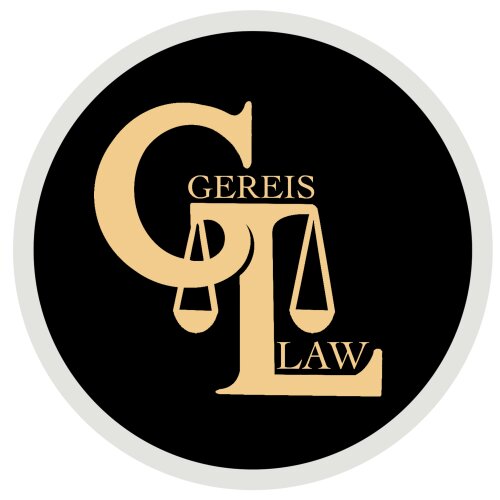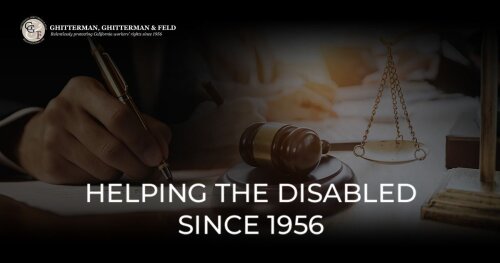Best Class Action Lawyers in Vermont
Share your needs with us, get contacted by law firms.
Free. Takes 2 min.
Or refine your search by selecting a city:
List of the best lawyers in Vermont, United States
About Class Action Law in Vermont, United States
Class action law allows a group of individuals with similar complaints or harms to join together and bring a collective lawsuit against a defendant, typically a business or organization. In Vermont, class action lawsuits are governed by both state and federal rules and serve as a tool to address widespread harm that may not be practical or economical for individuals to pursue on their own. These cases often involve issues such as consumer protection, defective products, employment practices, or environmental harm.
Why You May Need a Lawyer
There are many situations in which someone may need legal assistance with a class action in Vermont. Some common examples include:
- Discovering you are part of a group affected by a company's unlawful conduct, such as overcharging for services or selling unsafe products.
- Receiving a notification informing you that you could be included in a class action settlement or lawsuit and having questions about your rights.
- Wishing to start a class action on behalf of a group that has suffered similar harm or losses.
- Working to understand complex legal requirements for joining a class action or opting out to preserve individual claims.
- Needing advice on potential compensation, settlement terms, or legal timelines associated with class actions.
Class action lawsuits are complex and involve strict deadlines, intricate rules, and significant documentation. An experienced attorney can help determine your eligibility, explain your options, and represent your interests effectively.
Local Laws Overview
Vermont class action lawsuits are guided by both state statutes and rules of civil procedure. The most critical provisions are outlined in the Vermont Rules of Civil Procedure, primarily Rule 23, which closely mirrors the federal rule for class actions. The key aspects of class action law in Vermont include:
- Certification Requirements: Plaintiffs must show the class is so numerous that individual lawsuits are impractical, there are common legal or factual questions, the claims or defenses of the class representatives are typical of the class, and the representative parties can adequately protect the interests of the class.
- Court Approval: The court must certify the class before the case can proceed as a class action. The judge will evaluate whether the case meets all legal standards for class treatment.
- Notice to Class Members: Potential members must be given proper notice, typically through mail, publication, or electronic means, informing them about the case and their rights to participate or opt out.
- Settlement and Attorney Fees: Any settlement must be approved by the court to ensure it is fair and reasonable. Attorney fees and costs are also subject to court approval.
- Federal vs State Court: Some class actions are filed in Vermont's state courts, while others may fall under federal jurisdiction, especially if the lawsuit involves parties from different states or claims under federal law.
Frequently Asked Questions
What is a class action lawsuit?
A class action lawsuit is when a group of people with similar legal claims join together to file a single case against a defendant, usually for damages caused by the same conduct or event.
How does a class action get started in Vermont?
A class action usually starts when an individual, called the lead or named plaintiff, files a lawsuit on behalf of themselves and other affected individuals. The case must then be certified as a class action by the court.
What are some examples of class actions in Vermont?
Common examples include cases involving unsafe or defective products, consumer fraud, employment disputes, data breaches, and environmental contamination.
How do I know if I am part of a class action?
If you are potentially affected, you will usually receive a notice by mail, email, or publication. The notice will describe the lawsuit, your rights, and how to participate or exclude yourself.
Do I have to pay to join a class action?
Generally, class members do not pay attorney fees upfront. Lawyers representing the class are typically compensated as a percentage of any settlement or judgment, with court approval.
Can I opt out of a class action?
Yes, class members typically have the right to opt out, which means you choose not to participate in the class action and retain the right to pursue your own individual claim.
What happens if a class action settles?
If a class action settles, the court will review the agreement to ensure it is fair. You may be eligible to receive compensation or other benefits, but you may also give up the right to sue the defendant on your own for the same issue.
How long does a class action take?
Class actions can take several years to resolve due to their complexity and size, including the time needed for class certification, discovery, trial, and appeals.
Why do courts need to approve class action settlements?
Court approval is required to make sure the settlement is fair, reasonable, and in the best interests of all class members, especially since not all members are directly involved in the lawsuit.
Can I start my own class action if I think a group has been harmed?
Yes, but it is recommended to consult with an experienced attorney first. They can help assess the case, determine if a class action is appropriate, and handle the procedural requirements necessary for certification.
Additional Resources
If you are seeking more information about class actions in Vermont, the following resources and organizations can help:
- Vermont Judiciary: Offers information about civil procedure, court locations, and case filings.
- Office of the Vermont Attorney General: Handles consumer protection and public interest lawsuits, and can offer guidance or referrals.
- Vermont Bar Association: Provides a lawyer referral service and educational materials about class actions and civil law.
- Legal Services Vermont: Offers free or low-cost legal help for eligible Vermonters, including information on collective legal actions.
- United States District Court for the District of Vermont: Provides information on federal court class action procedures and case filings.
Next Steps
If you believe you may have a class action claim or have been notified about a pending class action, consider the following next steps:
- Gather all related documents, communications, and evidence about your claim or the harm you have suffered.
- Read any notices you receive carefully to understand your rights and deadlines to join or opt out of a class action lawsuit.
- Contact a qualified Vermont attorney with experience in class actions for a personal assessment and legal advice.
- Consult public resources or legal aid if cost is a concern.
- Stay informed by checking court or attorney updates regarding the status of current class action cases that may affect you.
Taking timely action and seeking professional guidance can help protect your legal rights and maximize your potential recovery in a class action case.
Lawzana helps you find the best lawyers and law firms in Vermont through a curated and pre-screened list of qualified legal professionals. Our platform offers rankings and detailed profiles of attorneys and law firms, allowing you to compare based on practice areas, including Class Action, experience, and client feedback.
Each profile includes a description of the firm's areas of practice, client reviews, team members and partners, year of establishment, spoken languages, office locations, contact information, social media presence, and any published articles or resources. Most firms on our platform speak English and are experienced in both local and international legal matters.
Get a quote from top-rated law firms in Vermont, United States — quickly, securely, and without unnecessary hassle.
Disclaimer:
The information provided on this page is for general informational purposes only and does not constitute legal advice. While we strive to ensure the accuracy and relevance of the content, legal information may change over time, and interpretations of the law can vary. You should always consult with a qualified legal professional for advice specific to your situation.
We disclaim all liability for actions taken or not taken based on the content of this page. If you believe any information is incorrect or outdated, please contact us, and we will review and update it where appropriate.
Browse class action law firms by city in Vermont
Refine your search by selecting a city.














